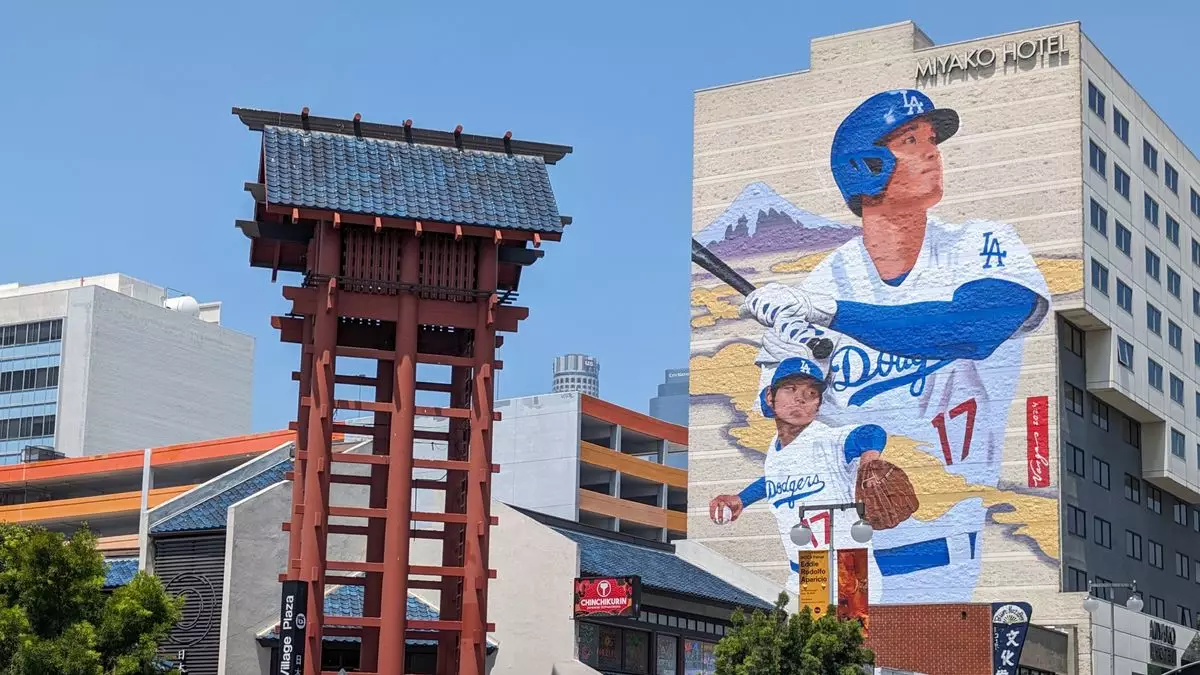The destructive wildfires that swept through Los Angeles County have conjured an urgent need for humanitarian assistance and economic resilience. As evacuation orders went into effect, hotels in the region swiftly adapted to double their roles: providing temporary refuge for those affected by the calamity while ensuring that the local tourism economy remained functional. This highlights the adaptability and resilience of the hospitality industry amidst crisis.
In the wake of natural disasters, the challenge often lies in balancing immediate needs with long-term economic sustainability. Jackie Filla, the CEO of the Hotel Association of Los Angeles, emphasizes this delicate equilibrium. Recognizing that the future of California’s tourism largely hinges on maintaining business continuity, Filla asserts that the district’s hotels are rising to meet both humanitarian and commercial imperatives.
“We can do both,” she insists, countering the notion that supporting evacuees and sustaining business are exclusive goals. By reporting that not a single request from local officials or nonprofit organizations has been declined, Filla underlines the industry’s commitment to service. This cooperative spirit is vital, as it demonstrates the hospitality sector’s inherent role as a problem solver during challenging times.
The tragic events that have unfolded in Los Angeles County have spurred an impressive wave of solidarity. As of mid-January, more than 300 hotels throughout Los Angeles and other Southern Californian regions responded to the crisis by offering reduced rates for evacuees. This sense of community is further illustrated by the proactive measures taken by the West Hollywood Travel + Tourism Board, with its marketing officer, Jeff Morris, reporting significant discounts and incentives designed to ease the burden on those displaced.
The hospitality community’s response isn’t limited to Los Angeles alone; hotels as far afield as San Diego, Palm Springs, and even Las Vegas have joined in the relief efforts. Fred Tayco, the executive director of the San Diego County Lodging Association, notes the immediate influx of evacuees to local properties, highlighting the commitment of the industry members to provide necessary assistance. This spirit of resilience reflects a long-standing culture in Southern California of rapid response during emergencies—an imperative that is now more crucial than ever.
While immediate relief is a primary objective for hotels, leaders in the industry are also contemplating more sustainable, long-term strategies. Programs like Inside Safe showcase successful partnerships to address housing challenges in Los Angeles by utilizing hotel accommodations for those in need of stable housing options. These initiatives present a dual pathway to recovery: assisting the displaced while enhancing the future viability of the hotel sector.
In tandem, retaining business during these turbulent times is of utmost importance, especially for venues that are gearing up to host major events and conferences. Filla insists on message clarity: “As long as it’s safe, we need people to come.” With this viewpoint, it aims to keep the industry afloat not only to secure jobs but also to gather essential tax revenues for the city—an argument that underscores the interconnectedness of tourism and local economies.
Los Angeles’s capability to rebound from adversity will undoubtedly hinge on the engagement of tourists and business travelers alike. The hospitality sector remains the primary generator of revenue aside from property taxes in the area, and events like the Americas Lodging Investment Summit are pivotal to re-establishing confidence in the regional economy. With events scheduled for late January, the message conveyed is one of resilience and anticipation rather than retreat.
Moreover, the entertainment industry, especially with its peak season approaching—from the Grammys to the Oscars—allows for a focus on revitalizing tourism. Morris emphasizes the significance of these awards as opportunities not just for glitter and glamour, but also as vital components to the economic health of West Hollywood and its vicinity.
The recent wildfires in Los Angeles County serve as a stark reminder of the fragility of communities in the face of natural disasters. Yet, they also showcase a profound testament to human resilience and the ability of industries like hospitality to adapt and respond effectively. By intertwining horizontal efforts to support evacuees with vertical initiatives geared toward sustaining business, the hospitality sector is carving a path through adversity. As the community and businesses work together, the collective response can pave the way for a brighter, more stable future in the region.

